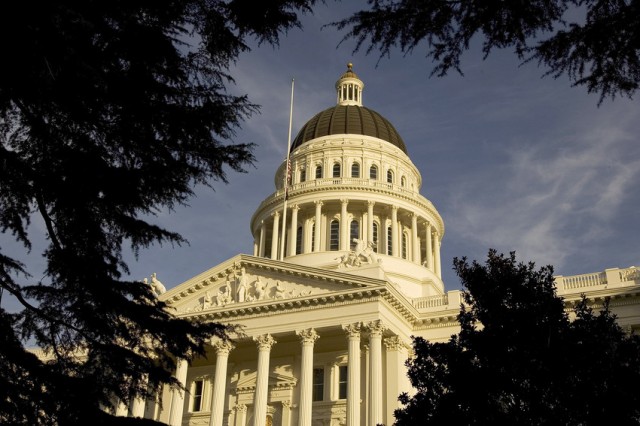
Few things have been as contentious in California budget circles over the past decade or more than whether lawmakers need new restrictions on how much money they can spend in any given year. After all, aren’t they supposed to be mindful stewards of taxpayer dollars without extra rules?
Yes, sure. But today Gov. Jerry Brown announced an agreement with both Republicans and Democrats in the Legislature to place a new — ostensibly better — version of a formal budget reserve on the November ballot.
Brown rolled out his own ideas for a rainy day fund with his budget in January, and called a special legislative session on the issue a few weeks ago. And all of these efforts were aimed at crafting a plan that would replace an existing rainy day measure on the November ballot, one crafted in a controversial budget deal with Gov. Arnold Schwarzenegger in 2010.
The new plan uses Brown’s idea of skimming off capital gains tax revenues that are considered abnormally high. Whereas the governor wanted to set aside any of these volatile revenues that are more than 6.5 percent above the state’s general fund revenues, legislative sources say the compromise plan would start stashing away only capital gains dollars that are 8 percent above general fund tax dollars.
That may not seem like a big deal, but here’s why it is: It allows more money, potentially billions of dollars, to be spent in each annual state budget. And that was a key demand of some legislative Democrats and Democrat-aligned interest groups, who all felt Brown’s proposal was too stringent.
The new proposal would also allow more of the reserve fund cash to be used to pay off state government debt. Capitol watchers had suggested Brown’s plan might require money to be put in the proverbial piggy bank even when huge unfunded liabilities of the state were growing. The proposal also retains a requirement in Brown’s earlier plan that would cap the rainy day fund at 10 percent of the state’s general fund revenue in any given year.
